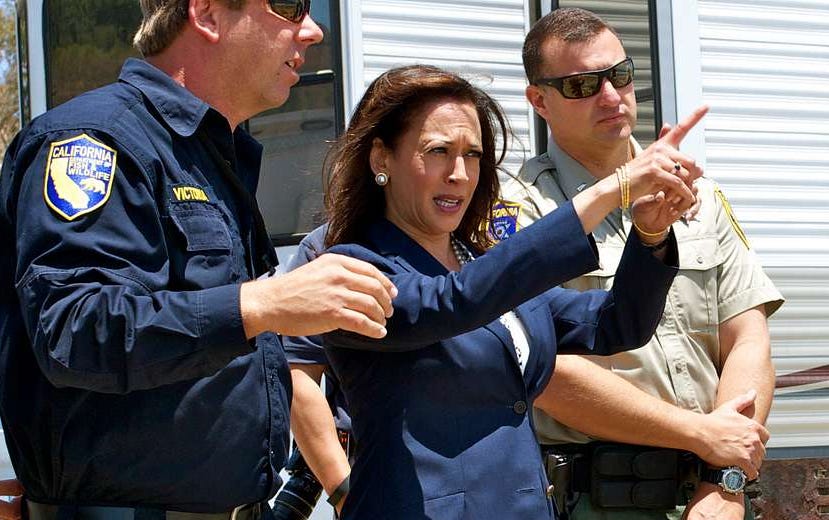She is a politician yet to meet a podium she does not like or an honest reporter whom she does.
She virtue-signals to Black Lives Matter but spent the first half of her career fighting "tooth and nail to uphold wrongful convictions that had been secured through official misconduct that included evidence tampering, false testimony and the suppression of crucial information by prosecutors.”
She is a feminist whose boyfriend, 30 years her senior, appointed her to cushy state jobs that should have gone to better qualified candidates.
She is a lawyer whose view of the First Amendment includes forcing religious non-profits to pay for abortions.
Kamala Harris is the most disliked vice president in NBC’s polling history. Without evidence, many in the media attribute this to race and gender, while hiding behind a border wall of their own hypocrisy.
The truth is that Harris’s “unfavorable” number is unremarkable. By that measure she and Biden are within a point of each other: well inside NBC’s 3.1-percent margin of error. Around half the country dislikes its old, white, male president just as much as it dislikes its younger, Jamaican and Indian, female vice president. And Obama’s “unfavorable” number was just two points better at this point in his first term.
Michelle Obama, in contrast, put up higher “favorable” numbers and lower “unfavorable” numbers—the two are distinct—than Barrack did in office and Biden and Harris are doing now. Numbers don’t lie; politicians and pundits do. Harris’s race and gender matter little to her poll results.
What sets Harris apart is that her own side of the aisle cannot seem to bring itself to describe its view of her as “favorable.” Obama’s 2011 “favorable” number was a full eight points higher than Harris’s is now, and Biden has a seven-point lead on her. Harris’s primary campaign failed, with support in the low single digits. She is unpopular even among progressive Democrats.
Thus, Harris’s internecine likeability crisis, not her race or gender, explains the record-setting gap between the number of respondents who report a “favorable” view of her and the number who report an “unfavorable” view. This is an elephant in the D.N.C.’s 2024 war room. And it is not easily remedied.
The politically astute have much to dislike in Harris’s past, but her current problems are visceral. She starts public appearances by exclaiming she is happy to be there, but few believe her. Americans know and dislike an insincere politician when they see one, regardless of race, gender, or party affiliations.
Once off to a rocky start, Harris then fails to connect with her audience. She espouses criminal-justice reform, but voters feel intuitively that she is the wrong person to address that issue. She speaks of economic hardships, but voters feel she neither understands their struggles nor empathizes. A politician need not have grown up poor to connect with voters on economic issues. Trump does it brilliantly. But a politician must convince voters that their interests come first, which Harris fails to do.
Last, Biden picked Harris expressly for demographic reasons, but voters seem to know he could have found an African American woman in his party who better represents and advocates for them. His failure to search more thoroughly perhaps reveals much about his view of the talents of African American women. Did he really think so little of them as a group that he felt they had no one better than Harris?
Regardless, when Harris speaks on race and women’s issues, voters feel she is posturing for political gain, like she did when she confronted Biden on school desegregation, only to become his running mate when opportunity knocked.
All this has the media and Democratic pollsters up against an uncomfortable reality in Harris’s likeability crisis. Their attributing it to race and gender is a gift to the G.O.P.: The presumed Democratic vice-presidential candidate is not just disliked, but largely unlikeable. And everyone knows why.




